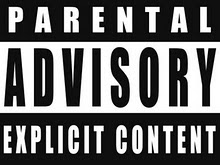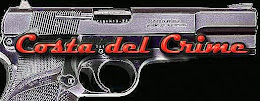Clay Roueche may be the top-ranking UN gangster to go down on drug charges
Clay Roueche may have been arrested just last year, but the cracks in his United Nations gang started surfacing in early 2005.That's when UN helicopters flying clandestinely across the border hit the radar of police in both Washington state and British Columbia.According to U.S. court documents filed for Roueche's sentencing hearing Wednesday, Chilliwack RCMP were already following around some of Roueche's UN associates by the third week of 2005.They tracked a Robinson R22 helicopter to a hangar at the Chilliwack Airport on Jan. 24, 2005 that was rented by Joe Curry, who had used his credit card to purchase chopper fuel. Like Roueche, Curry was later charged with conspiracy to traffic in the U.S., but he remains in Canada.
A day later, RCMP surveillance followed a car to the same hangar and later to a meeting with someone driving a vehicle registered to UN gang member Daryl Johnson. Johnson's car then was driven to UN Gang member Douglas Vanalstine's business in Abbotsford, B.C., where Vanalstine's car also was parked.Late last month, both Vanalstine and Johnson were charged in B.C. with conspiracy to traffic cocaine after an undercover operation by the Combined Forces Special Enforcement. Vanalstine is charged on the same indictment in Washington state to which Roueche has pleaded guilty.The U.S. Attorney is asking for a 30-year-sentence for Roueche, but his lawyer Todd Maybrown says that is unfair and disproportionate to others already convicted in the same international drug conspiracy.And there are many.Roueche may be the top-ranking UN gangster to go down on drug charges, but a whole string of his mules and smugglers also was arrested, charged, convicted and jailed in the U.S., according to courts.B.C. resident Alexander Swanson was arrested on Aug. 12, 2005 — off-loading UN pot in Washington state. Calgary brothers Zachary and Braydon Miraback were arrested in Puyallup on Sept. 21, 2005, with 453 kilograms of B.C. bud that had been flown across by helicopter earlier that day.U.S. warrants were issued for the arrests of two Fraser Valley men — Trevor Schoutens and Brian Fews — who had been followed across the border by U.S. agents several times as they facilitated the movement of marijuana.On Dec. 1, 2005, B.C. resident Greg Fielding got nabbed with 148 kilograms of pot stuffed into hockey bags that had been dropped off by a white float plane on Soap Lake, near Spokane.Three months later, on March 14, 2006, B.C. pilot Kevin Haughton was arrested by the Colville Tribal police after he abandoned a float plane with 142 kilograms of marijuana and 24,000 ecstasy pills.Haughton told police that he worked for Duane Meyer, a UN gangster based in Abbotsford who was gunned down last year in a targeted hit.Nine days later, two Vancouver women — Sharmila Kumar and Shailen Varma — were picked up at Soap Lake where they had also picked up marijuana that had been flown in to the remote spot.On Sept. 25, 2006, Joshua Hildebrandt and Nicholas Kocoski were busted near Rimrock, Wash., after flying undetermined contraband in a rented Piper Cherokee from Chilliwack, B.C.Two days later, B.C. man Daniel LeClerc was arrested near Yreka, Calif., with 144 kilos of cocaine in his aircraft. He was en route to Chilliwack.On Oct. 3, 2006, Chilliwack realtor and close Roueche associate Michael Gordon as well as Alexander Kocoski crossed into Washington state to bail the Kocoski's brother and Hildrebrandt out of jail. Gordon was later shot to death in Chilliwack on Aug. 20, 2008.Many of the Canadians arrested in the U.S. co-operated and pleaded guilty, providing information about their links in Canada. Others claimed not to know those behind the shipments they were ferrying or hauling across the border.But police in both Canada and the U.S. knew the common denominator was Clay Roueche and the UN gang. And they set their sights on bigger fish.The Americans recruited an informant named Ken Davis who had agreed to be one of Roueche's men in the U.S., according to public documents filed in a Seattle court.
Davis gathered incriminating evidence linking the UN leader to marijuana and cocaine smuggling and money laundering in the millions of dollars.Davis visited Roueche in Abbotsford and was given Roueche's contacts in California to which he was asked to deliver about $500,000 a week in drug profits and return to Seattle with 25 kilos of cocaine per trip.When Roueche was away in Mexico or in Asia, he got Davis to call Dan Russell for orders, the court documents say. Russell is now charged in B.C. with conspiring to kill the Bacon brothers and their Red Scorpion associates.Roueche was indicted in Washington by a grand jury in October 2007. But the U.S. file remained sealed until Roueche was nabbed after being turned away from Mexico on May 17, 2008, and forced to land in Texas where the warrant was waiting.
The breadth of his operation and the violence both threatened and inflicted are the reasons why the U.S. attorney wants Roueche locked away for 30 years."The affidavits of the various co-operators paint the picture of a controlled, powerful man who appeared willing to take whatever necessary steps in order to continue his lucrative drug-trafficking business," the U.S. attorney's office says in its sentencing memo."The UN Gang is the type of organized, sophisticated drug trading group that presents a significant danger to the safety, peace and security of the United States."But Maybrown is arguing that the myth of Clay Roueche is bigger than the man himself.
He said that while the U.S. attorney claims in its sentencing documents that UN gang members "have become known for their reputation of extreme violence," no evidence of Roueche using violence has been entered.Two of Roueche's young daughters wrote letters to the judge, pleading to let "Daddy come out because we had lots of fun together."Maybrown pointed Roueche's own words as indication the gang leader has changed.
"Until recently, I did not even think about, let alone understand, the consequences of my actions," Roueche said in a letter to the court."I now understand that I have hurt myself, my family members and others because of my foolish actions. For all of this, I am truly sorry."
A day later, RCMP surveillance followed a car to the same hangar and later to a meeting with someone driving a vehicle registered to UN gang member Daryl Johnson. Johnson's car then was driven to UN Gang member Douglas Vanalstine's business in Abbotsford, B.C., where Vanalstine's car also was parked.Late last month, both Vanalstine and Johnson were charged in B.C. with conspiracy to traffic cocaine after an undercover operation by the Combined Forces Special Enforcement. Vanalstine is charged on the same indictment in Washington state to which Roueche has pleaded guilty.The U.S. Attorney is asking for a 30-year-sentence for Roueche, but his lawyer Todd Maybrown says that is unfair and disproportionate to others already convicted in the same international drug conspiracy.And there are many.Roueche may be the top-ranking UN gangster to go down on drug charges, but a whole string of his mules and smugglers also was arrested, charged, convicted and jailed in the U.S., according to courts.B.C. resident Alexander Swanson was arrested on Aug. 12, 2005 — off-loading UN pot in Washington state. Calgary brothers Zachary and Braydon Miraback were arrested in Puyallup on Sept. 21, 2005, with 453 kilograms of B.C. bud that had been flown across by helicopter earlier that day.U.S. warrants were issued for the arrests of two Fraser Valley men — Trevor Schoutens and Brian Fews — who had been followed across the border by U.S. agents several times as they facilitated the movement of marijuana.On Dec. 1, 2005, B.C. resident Greg Fielding got nabbed with 148 kilograms of pot stuffed into hockey bags that had been dropped off by a white float plane on Soap Lake, near Spokane.Three months later, on March 14, 2006, B.C. pilot Kevin Haughton was arrested by the Colville Tribal police after he abandoned a float plane with 142 kilograms of marijuana and 24,000 ecstasy pills.Haughton told police that he worked for Duane Meyer, a UN gangster based in Abbotsford who was gunned down last year in a targeted hit.Nine days later, two Vancouver women — Sharmila Kumar and Shailen Varma — were picked up at Soap Lake where they had also picked up marijuana that had been flown in to the remote spot.On Sept. 25, 2006, Joshua Hildebrandt and Nicholas Kocoski were busted near Rimrock, Wash., after flying undetermined contraband in a rented Piper Cherokee from Chilliwack, B.C.Two days later, B.C. man Daniel LeClerc was arrested near Yreka, Calif., with 144 kilos of cocaine in his aircraft. He was en route to Chilliwack.On Oct. 3, 2006, Chilliwack realtor and close Roueche associate Michael Gordon as well as Alexander Kocoski crossed into Washington state to bail the Kocoski's brother and Hildrebrandt out of jail. Gordon was later shot to death in Chilliwack on Aug. 20, 2008.Many of the Canadians arrested in the U.S. co-operated and pleaded guilty, providing information about their links in Canada. Others claimed not to know those behind the shipments they were ferrying or hauling across the border.But police in both Canada and the U.S. knew the common denominator was Clay Roueche and the UN gang. And they set their sights on bigger fish.The Americans recruited an informant named Ken Davis who had agreed to be one of Roueche's men in the U.S., according to public documents filed in a Seattle court.
Davis gathered incriminating evidence linking the UN leader to marijuana and cocaine smuggling and money laundering in the millions of dollars.Davis visited Roueche in Abbotsford and was given Roueche's contacts in California to which he was asked to deliver about $500,000 a week in drug profits and return to Seattle with 25 kilos of cocaine per trip.When Roueche was away in Mexico or in Asia, he got Davis to call Dan Russell for orders, the court documents say. Russell is now charged in B.C. with conspiring to kill the Bacon brothers and their Red Scorpion associates.Roueche was indicted in Washington by a grand jury in October 2007. But the U.S. file remained sealed until Roueche was nabbed after being turned away from Mexico on May 17, 2008, and forced to land in Texas where the warrant was waiting.
The breadth of his operation and the violence both threatened and inflicted are the reasons why the U.S. attorney wants Roueche locked away for 30 years."The affidavits of the various co-operators paint the picture of a controlled, powerful man who appeared willing to take whatever necessary steps in order to continue his lucrative drug-trafficking business," the U.S. attorney's office says in its sentencing memo."The UN Gang is the type of organized, sophisticated drug trading group that presents a significant danger to the safety, peace and security of the United States."But Maybrown is arguing that the myth of Clay Roueche is bigger than the man himself.
He said that while the U.S. attorney claims in its sentencing documents that UN gang members "have become known for their reputation of extreme violence," no evidence of Roueche using violence has been entered.Two of Roueche's young daughters wrote letters to the judge, pleading to let "Daddy come out because we had lots of fun together."Maybrown pointed Roueche's own words as indication the gang leader has changed.
"Until recently, I did not even think about, let alone understand, the consequences of my actions," Roueche said in a letter to the court."I now understand that I have hurt myself, my family members and others because of my foolish actions. For all of this, I am truly sorry."









0 Response to "Clay Roueche may be the top-ranking UN gangster to go down on drug charges"
Post a Comment
Note: only a member of this blog may post a comment.